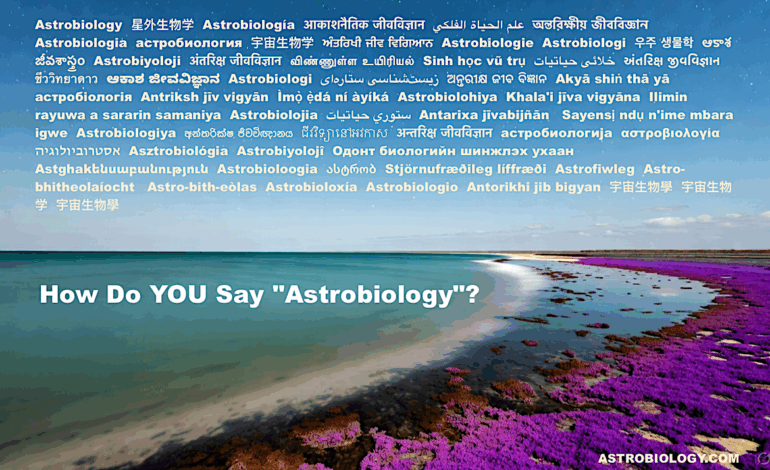Discover How “Astrobiology” Translates Across 100 Languages

The term “astrobiology” has gained significant recognition globally, particularly since NASA began emphasizing its relevance in the late 1990s. A recent exploration into how “astrobiology” is expressed in various languages highlights the term’s evolution and adoption. An artificial intelligence program named Grok provided translations of “astrobiology” into the top 100 languages spoken worldwide, reflecting the term’s growing importance in scientific discourse.
Astrobiology encompasses the study of the origin, evolution, distribution, and future of life in the universe. It draws upon multiple scientific disciplines, including biology, astronomy, chemistry, planetary science, and astrophysics, among others. As a result, the term has become central to the search for extraterrestrial life, leveraging all available scientific tools.
Global Acceptance of Astrobiology
The term “astrobiology” originated in the 20th century and has become widely recognized in academic circles. According to data from Ethnologue, which compiles information on language speakers, the translations provided by Grok range from major languages like Mandarin Chinese—boasting over 1.1 billion speakers—to those with 50 to 60 million speakers, such as Min Nan or Jin.
In many languages, “astrobiology” is either directly borrowed from English, adapted phonetically, or translated descriptively. For example, some languages use phrases like “science of life in space.” The lack of a standardized term in several languages often leads to the borrowing of the English term or its transliteration.
Insights from the Linguistic Exploration
This linguistic exploration underscores how scientific terminology evolves in different cultural contexts. In various regions, “astrobiology” is grouped with terms like “space life science” or “star biology.” The diversity of expressions reflects not just linguistic differences but also varying cultural perceptions of life in the cosmos.
The list generated by Grok includes terms verified against reputable linguistic sources, including academic dictionaries and translation databases such as Glosbe and Wiktionary. These sources ensure accuracy and provide insight into how the term is used in scientific contexts.
While the term “astrobiology” is relatively new, its adoption across different languages indicates a growing global interest in the search for extraterrestrial life. In academia, even in non-Latin scripts, the English term is frequently utilized, highlighting the term’s universal appeal.
For those interested in exploring audio pronunciations or further details about specific languages, additional resources are available upon request. As the field of astrobiology continues to develop, so too will the language surrounding it, adapting to encompass new discoveries and innovations in the quest to understand life beyond Earth.






